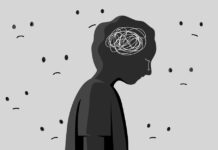Allen Frances writes for Huffington Post: “As Aristotle pointed out, we are social animals who can be fully human only when interacting with others. In the US, we worsen the symptoms of our mentally ill by neglecting their needs and excluding them from society. Fortunately, the reciprocal is also true — we can heal by simple human acts of caring and inclusion.”
-
Why are most of the school shooters on psychotropic drugs when they kill their classmates and teachers?
-
“As Aristotle pointed out, we are social animals who can be fully human only when interacting with others.”
Not sure I’d agree with Aristotle, here. Being with ourselves, in solitude, is, indeed, to be fully human. Social interaction is good and so is our ability to be with ourselves, without being haunted to the point of sinking from overly stressful and chronically painful thoughts. We tend to avoid our undesirable thoughts and feelings in the company of others, while they still fester and impact our lives. With ourselves, we can actually address our issues in a way that is uplifting to us, rather than relying on the mirroring of those around us. That’s balance, and how we heal dependence on others.
“In the US, we worsen the symptoms of our mentally ill by neglecting their needs and excluding them from society.”
Actually, society is what makes people ill, the way it functions at present. We live in a sick society, so I think it’s more healthful and sound to separate from society as a whole, and take some time to redefine ourselves, look at our goals, our nature—i.e., individuating and aligning with our own creativity. The more people that do this, the more individuals and society in general will heal. To once again repeat Jiddu Krishnamurti’s wise and, to my mind, true words, “It is no measure of health to be well-adjusted to a profoundly sick society”
“Fortunately, the reciprocal is also true — we can heal by simple human acts of caring and inclusion.”
We can best heal by feeling good about ourselves, by defining our lives on our own terms, and by not being dependent on others. If we depend on a group to ‘include’ us, then we have completely given our power over to that community. ‘Inclusion’ is an illusion. Everyone is part of the global community, like it or not.
“Virgil Stucker has spent almost his entire adult life in therapeutic communities that encourage the resocialization and recovery of people with severe mental illness.”
This is ironic for me. I’ve been in a variety of communities in my life, and I feel good pretty much anywhere. EXCEPT, whenever I get near anything that wreaks of ‘mental health’ and all that stuff, I notice a big change around me, way in the negative.
Suddenly, it is controlling, oppressive, chaotic, conflict-oriented, and pure madness like I’ve never seen before. Clients vs. professionals—I see no distinction, here, as far as energy goes.
From grad school to day treatment to voc rehab to professional advocacy and activism, there is a specific energy in this ‘mental health’ world that permeates it in an extremely divisive, dualistic, very harsh and rigid way. I can hardly wrap my head around it; it is so strong, and so distinct from anything I’ve experienced in my life, in other professional and social communities.
I just don’t get why it is so damn stuck! It’s like nothing will budge it. Feels like a lot of rage to me, just from my hit when I put it all together, from the last 20 years I’ve been active in that world. I actually find this particular ‘mental health society’ ill-making, rather than ‘therapeutic,’ that’s the irony I was noting.
This is one stubborn aspect of society, of that I have no doubt. I think it’s at the brink, and on the verge of serious transformation into something totally new and different, based on heart energy. That is my very sincere wish and desire. THEN, socializing might be more therapeutic than not. At this point, I’d simply call it “crazy-making.”
That’s been my experience of this whole thing.
-
In other words, we need to heal cult mentality. Know yourSELF. Don’t be sheeple.
-














